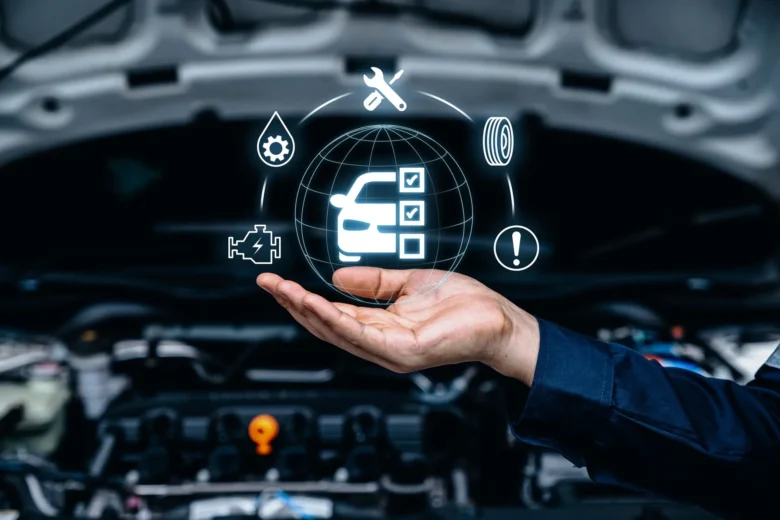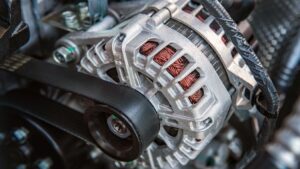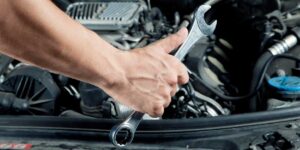Car maintenance is very important if you want your car to last a long time and run smoothly. Regular maintenance not only extends the life of your car, but also makes driving safer, more reliable, and more enjoyable overall. To keep your car in good condition, you need to know and follow some basic maintenance rules.
1. Understand the Importance of Regular Oil Changes
Regular oil changes are one of the most important parts of keeping your car in good condition. Oil prevents the moving parts of your engine from rubbing against each other and getting too hot. Over time, engine oil breaks down and stops working, which can damage your engine and cause it to wear out faster. Read your owner’s manual to find out how often your oil should be changed, and then do it. It is also very important to use the right engine oil for your car. Changing the oil in your engine regularly is important for the long-term health of your car.
2. Maintaining Optimal Tire Condition
Tires are the only part of your car that touches the road, so it’s important to keep them in good condition for safety and speed. Regularly checking your tire pressure and making sure it’s within the recommended range will help your car use less gas and last longer. Also, check the tread height of your tires to make sure they have enough grip, especially in bad weather. Rotating your tires daily will help extend the life of your tires and help them wear evenly. Keeping your tires aligned will also help prevent uneven wear and make your car easier to drive.
3. Check and Replace Your Air Filter
Your car’s engine air filter and seat air filter are important for keeping your car running smoothly and keeping you comfortable. The engine air filter prevents dust and other materials from entering the engine, which can reduce performance and use more gas. If the air filter is clogged, your engine will run slower and use more gas. Likewise, a cabin air filter ensures that the air entering your car is clean and free of contaminants. For optimal performance and air quality, you should check and replace these filters as recommended in your vehicle’s maintenance schedule.
4. Check Fluid Levels
Your car needs fluids such as coolant, brake fluid, transmission fluid, and power steering fluid to function properly. Each of these fluids is important to the proper functioning of many different parts of your car. Regularly checking and adding these fluids will keep your car running smoothly and prevent problems. For example, coolant keeps your engine at the right temperature, and brake fluid is necessary to stop your vehicle safely. By following your car’s maintenance schedule and checking your fluid levels regularly, you can avoid expensive repairs and keep your car running smoothly.
5. Check and Replace Brake Pads
Your car’s brakes are an important safety feature, and their condition directly affects how well you stop. To ensure safety, you should regularly check your brake pads for wear. If your brake pads are worn, you should replace them with new ones so you can stop safely. Also, pay attention to any unusual noises, such as squeaking or grinding, which could indicate that your brakes need to be repaired. Regular brake maintenance can help keep your car safe and prepared for emergencies.
6. Keep Your Battery Well Maintained
A car battery stores the electricity used to start your car and run your electrical systems. As part of battery maintenance, you should monitor its charge and make sure it is clean and free of corrosion. Over time, batteries can lose their charge and need to be replaced. Regular battery checks and inspections can help keep your car running smoothly and prevent sudden failure. Keeping your batteries turned off when not in use can also help extend the life of your batteries.
7. Pay Attention to Your Cooling System
In your car, the cooling system regulates the temperature of the engine and prevents it from getting too hot. Radiators, water pumps, thermostats, and pipes are some of the components that make up this system. To ensure proper cooling, it is important to regularly check these parts for leaks or damage. Flushing and replacing the coolant as recommended in your vehicle’s maintenance schedule can help prevent metal from rusting and ensure proper cooling. Proper maintenance of your cooling system is important to prevent engine burnout and ensure its proper functioning over the long term.
Conclusion
Overall, regular car maintenance is important to ensure that your car lasts and runs smoothly. To keep your car running smoothly and efficiently, you need to know how to regularly change your oil and filter, maintain your tires, replace your air filter, check your fluids, inspect your brakes, maintain your battery, keep it cool, and more. If your system is in good condition, maintain your timing belt or chain and have your car inspected by a professional. By following your car’s maintenance schedule and addressing problems promptly, you can avoid costly repairs and keep your car safe and reliable on the road.
FAQs
1. What is the most important thing to do when maintaining your car?
Changing your oil is the most important part of keeping your car in good condition. Oil prevents the moving parts of your engine from rubbing against each other and getting too hot. Regular oil changes keep your engine running smoothly and quickly, which is important for the performance and longevity of your car.
2. How often should I check my tire pressure?
Check your tire pressure at least once a month and before a major trip. Having the correct tire pressure is important for safety, saving fuel, and extending the life of your tires. Recommended tire pressure levels can be found in your car’s owner’s manual.
3. How do I know if my brake pads need replacing?
Noises such as squeaking or grinding when braking, poor braking, or a vibrating brake pedal are all common signs that your brake pads need to be replaced. If you notice any of these symptoms, have your brakes inspected and repaired by a professional.
4. How do I know when to buy a new battery for my car?
If you have trouble starting your car, the battery warning light comes on, or if the battery is more than three to five years old, you should buy a new battery. Regularly checking the condition and charge of your battery can also help you determine if it needs to be replaced.
5. Why is it important to keep your cooling system in good condition?
Maintaining your cooling system is important to prevent your engine from overheating. The radiator, water pump, and thermostat are all part of the cooling system that keeps the engine at the right temperature. Regularly checking for leaks and ensuring the proper amount of coolant can help prevent engine damage.




